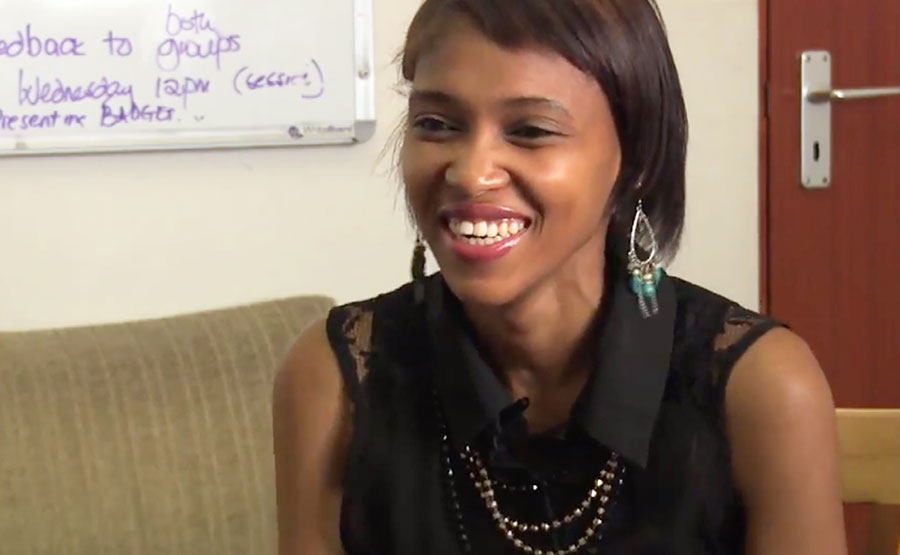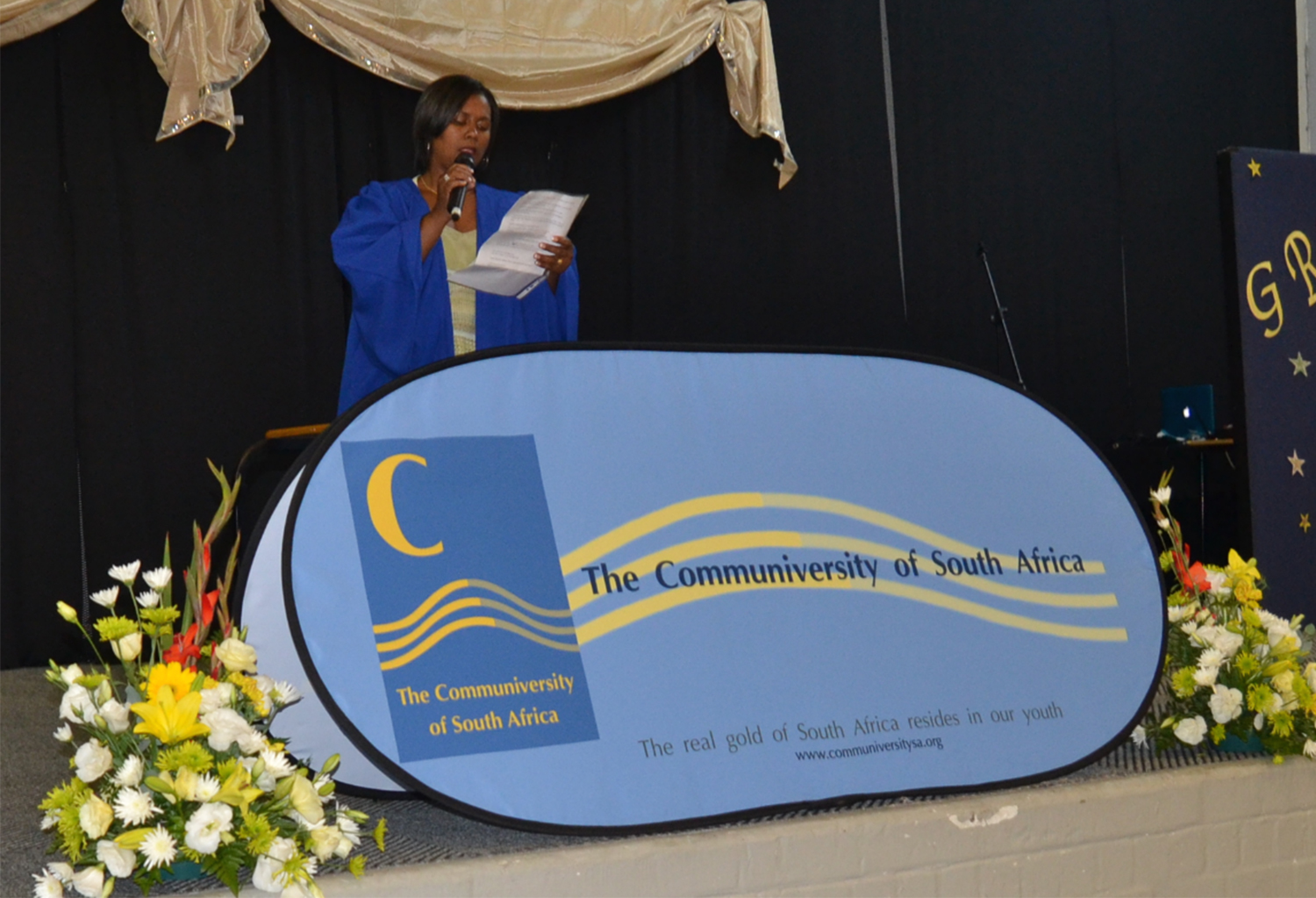
From the Streets to College in Four Months: The Communiversity of South Africa Empowers Underserved Youth in Cape Town
When Leona failed to earn a high school diploma in Cape Town, South Africa, her prospects for employment were bleak. The teenager spent her days shut inside her tiny one-room family home “feeling like a failure, knowing that I’m no one.”
While to the American ear that may sound like overwrought adolescent emotions, in South Africa despair is unfortunately the predominant experience of the youth population.
Due to poverty and educational failures stemming from apartheid, three million South African youth are considered NEET—not in education, employment or training. Of the 50% who do pass matric (national exams resulting in a high school diploma), few score high enough to qualify for technical college or university. This results in a 75% high-school dropout rate, massive unemployment (30%) and poverty—accompanied by depression, drug addiction, crime and gang violence.
Happily for Leona, a friend suggested that she attend an innovative pre-college program that offers a bridge to success for underserved youth in the slums of Cape Town. Since its founding in 2012, the Communiversity of South Africa has helped over 900 students—mainly those who dropped out of high school or failed matric—complete its 12-week program. Following its college-prep program, the Communiversity has placed more than 60% of its graduates at technical and other colleges that prepare students for careers in business management, IT, construction, solar technology, culinary arts and hospitality—as well as in auto mechanics, welding, ship-building, carpentry, boiler-making, and electrical and mechanical engineering. As a result of its pre-professional program, the Communiversity has placed another 30% of its students in apprenticeships or vocations in the trades—or helped them to start their own businesses.
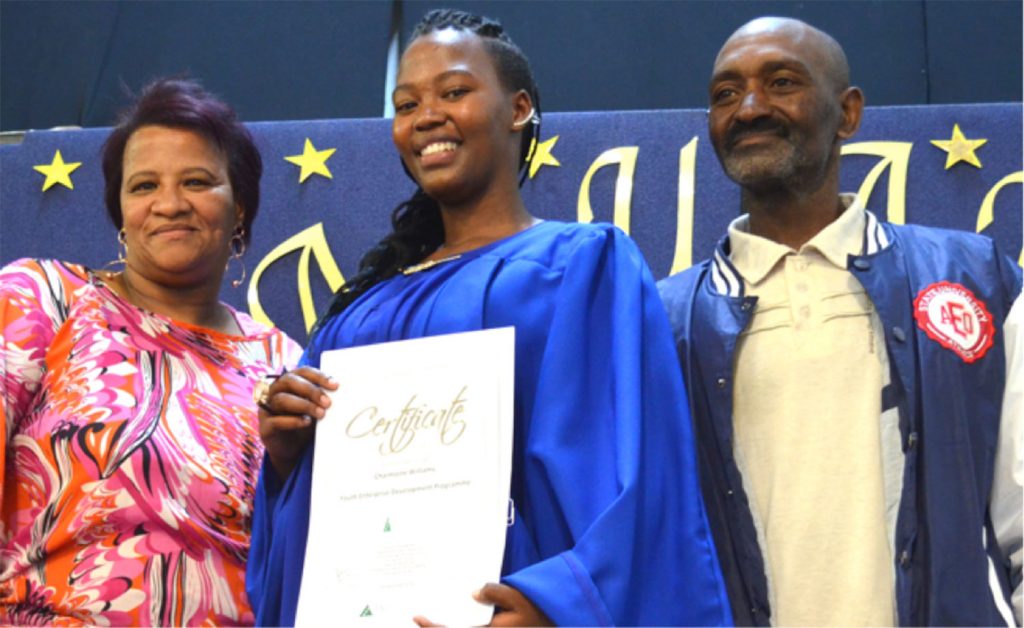
“At the Communiversity I was able to gain my confidence again,” Leona says. With her new skills and boosted self-esteem, she not only passed matric, but was accepted into college on a full scholarship.
“The negative thoughts are gone,” she says. “I turned the page to a new chapter of my career and studied finance.” At the time she mentioned this, she was completing an internship as the final step before receiving her national diploma in Financial Management.
This story of empowerment has been repeated over and over among the graduates of the Communiversity. And these formerly failing students are excelling. Their college instructors describe them as academic achievers who are goal-oriented, emotionally mature, and growing into inspiring leaders.
“We like to say that the whole point of the Communiversity is to get bright, deserving young people out of a life of failure into a life of success,” says Melanie Brown, Ph.D., an educational psychologist and author who co-founded the Communiversity with her partner Marcia Abrahams, a native Capetonian and teacher.
And it doesn’t take long for this transformation to take place. “We take our students from the streets to college in four months,” says Melanie, who is Executive Director of the school. “Which is pretty amazing, even to us!”
Breaking the Cycle of Poverty
Both founders brought years of experience in South Africa’s educational environment to the table. Melanie had spent 14 years raising funds for and teaching at colleges for disadvantaged youth in Johannesburg. Marcia Abrahams not only taught communication arts in Cape Town schools but also worked in the business world training underserved South African youth in the early years of computers.
What is the formula for transforming the lives of nearly a thousand students?
Three key ingredients stand out. The first is the unique curriculum, which allows students to be introduced to an experience of a variety of career possibilities and offers intensive English and math classes to repair the weaknesses in their students’ education. They were able to incorporate intensive accredited courses in math and English, developed and delivered by two outstanding women faculty members, Priscilla David and Liticha Van Neel, who both manage and teach.
“It was an eye-opener when we found out that most of our students didn’t have basic math or reading skills,” says Melanie.
“For many of these students, just being in a small group environment of 15 to 25 students made all the difference,” says Marcia. “In public school they are in classrooms with a very high number of students, and if they miss a step they fall hopelessly behind.”
Every student also takes a wide variety of courses from computer skills to financial literacy, entrepreneurship, and debating. Hands-on workshops include carpentry, welding, engineering, plumbing, solar technology, culinary and hospitality, first aid, debating, organic gardening, presentation skills and even swimming and surfing.
While Communiversity accepts both male and female students, the majority are women ages 18 to 35, and the introduction to career preparation is especially pivotal for them.
“For example, all our students took the short welding course and several of the women graduates were inspired to become qualified welders,” says Marcia, who is Director of Development. “That’s huge for a woman in South Africa, and it’s happening more and more—we are proud that our women graduates are entering college in well-paying fields.”
“IT is also a most important course,” says Melanie. “How many young women think that they are going to work with computers when they enter the Communiversity?” she queries. “Zero. So we invite the woman head of the IT department at the local college to speak with the Communiversity women about a career in computers and coding and our women students start to think, ‘Oh really, I can do this?’”
Melanie says this is one important goal of the Communiversity: to give these deserving women (and men) an experience of what they can continue to accomplish in their lives. “They leave totally transformed, recognizing that they can aim to be anything they want to be,” she says.
Personal Development and Self Esteem
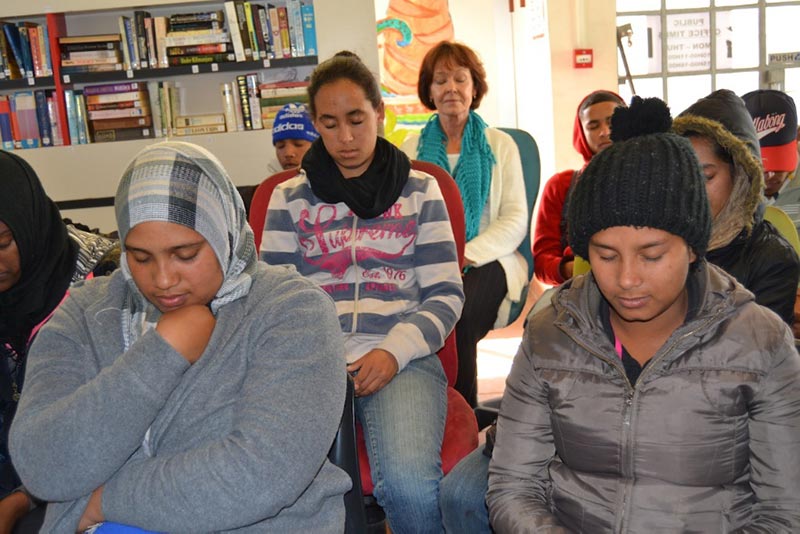
The second key ingredient is teaching the students the Transcendental Meditation technique to help them overcome the stress of living in poverty, to settle their minds for learning, and to help raise their self-esteem.
“Everyone notices a huge change in the group from the moment each student learns in a private session with their TM teacher,” says Marcia. “Before instruction, they are quite unfocused; afterwards, they start to settle, and they become much more attentive and responsive.”
The students also report that they find learning much easier after taking the TM course. “With TM, I’m able to be more calm,” says Monique. “I’m able to understand the math more easily, to pay attention to what I’m being taught. I’ve never before gotten such high marks.”
Melanie and Marcia themselves have practiced the Transcendental Meditation technique on a daily basis most of their lives, and credit it with giving them the enormous energy and focus it takes to keep the school running even though most people their age are retired.
“The TM technique is such an important tool for self-development not only for the students, but for us and for our staff members as well,” says Melanie. “TM is such a key ingredient for success. It just takes that inner experience that opens their awareness and leads to amazing things to start happening for them.”
The boost in self-esteem and self-sufficiency is especially important for women students. Marcia points out that there are so many beautiful tribal traditions in South Africa, but they are all rooted in the traditions of women serving their families and their communities.
“It’s important to realize that even though the power in these communities may be held by men, it is the women who hold the families together,” she says. “We believe it’s the women who are in fact powerfully transforming the country. So as we mine the real gold of South Africa within our students, we are aware that we must focus on the education of the women so they can lead their families out of poverty.”
Community plus University = Communiversity
A third ingredient of the Communiversity’s success is its close-knit ties to the community, with its first campus located at the Vrygrond Community Center built by the trusts of Elton John and Annie Lennox, and its second campus in Strandfontein.
The way Melanie and Marcia envisioned it, the Communiversity is like a little “university on wheels,” bringing classes to the students where they live. This eliminates costs of housing and transportation and the emotional toll of separation from families.
Relying on an increasingly powerful network of contacts, the school is an integral part of the surrounding communities, providing new opportunities to its residents and relying on local experts to teach many of the courses, such as the surfing classes in the nearby Indian Ocean.
“Our educational model is also working well because we are involved with the community,” says Melanie. “It took a while, but now we aren’t seen as outsiders.”
The Communiversity also contributes to the well-being of the community by offering a supportive learning environment for its students—emotionally, physically, and academically. It provides the students with two meals a day, catered by a local business, so students are nourished in every necessary way.
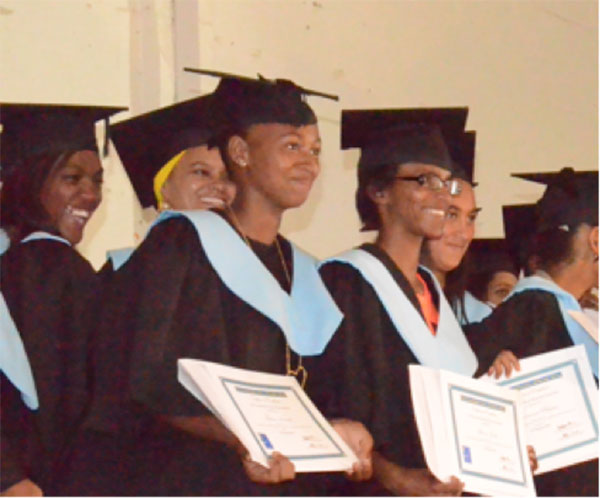
It costs $850 per student for the entire four-month program, including meals. The Communiversity relies entirely on donations, as students pay less than $20 of the cost of the program. And once the Communiversity graduates are accepted into college, almost all qualify for low-income scholarships and travel stipends—which means they essentially receive a fully-paid, three-year college degree.
Currently supported by businesses, foundations and friends, in the future, Melanie and Marcia would like to secure long-term sources of funding so they can focus on scaling the model. They’d like to see the Communiversity’s highly successful model replicated throughout Africa and even globally as a proven way to realistically empower youth and change their lives forever.
As Leona expressed it, “My confidence was boosted and no one could stand in my way or keep me from achieving my goal. The Communiversity basically gave me the courage to look at my life in a different way.”
For more information and to donate, visit https://www.communiversitysa.org.
Learn more about the TM program
About the Author
Linda Egenes writes about green and healthy living and is the author of six books, including The Ramayana: A New Retelling of Valmiki’s Ancient Epic—Complete and Comprehensive, co-authored with Kumuda Reddy, M.D.
